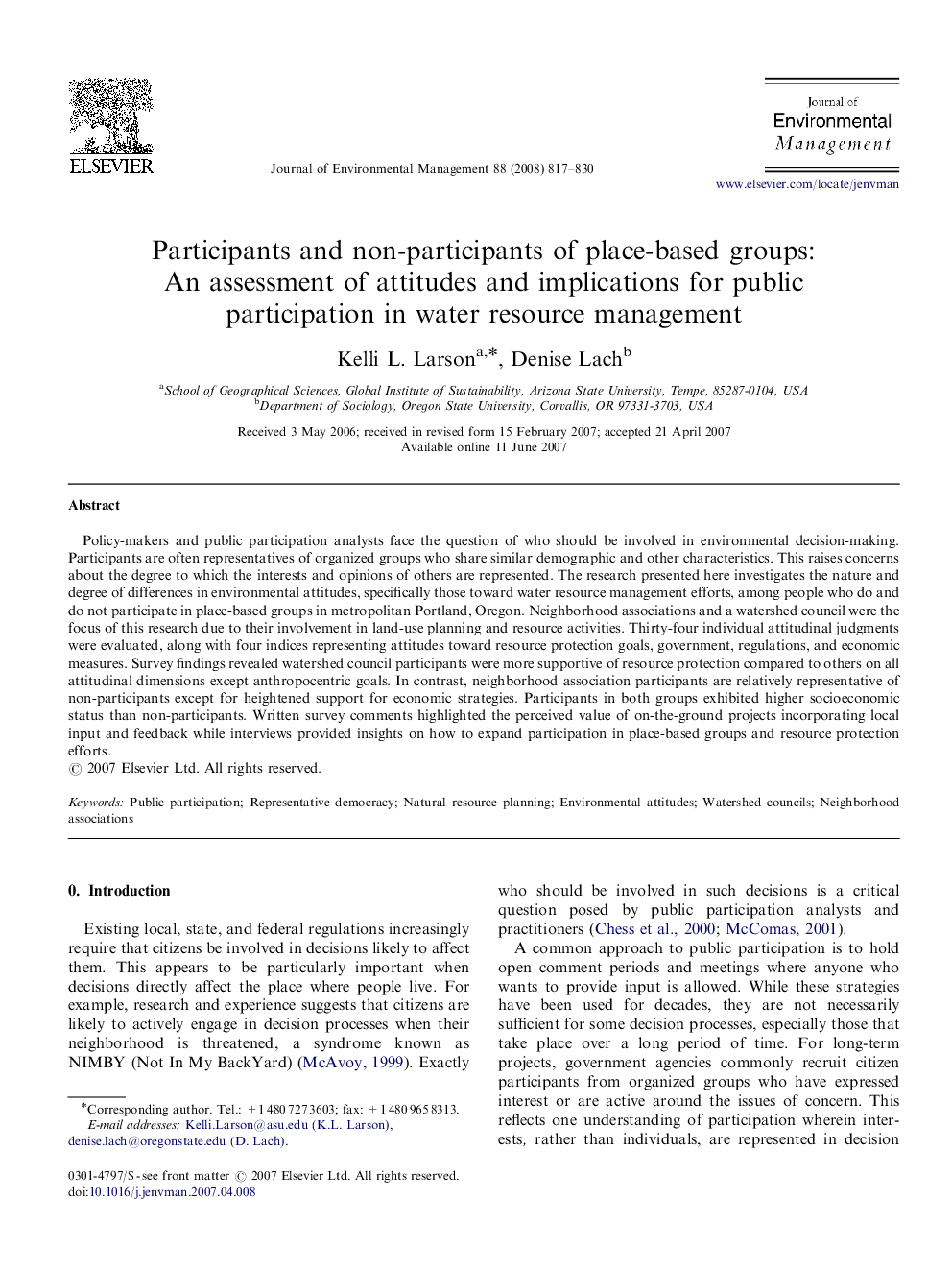| Article ID | Journal | Published Year | Pages | File Type |
|---|---|---|---|---|
| 1058278 | Journal of Environmental Management | 2008 | 14 Pages |
Policy-makers and public participation analysts face the question of who should be involved in environmental decision-making. Participants are often representatives of organized groups who share similar demographic and other characteristics. This raises concerns about the degree to which the interests and opinions of others are represented. The research presented here investigates the nature and degree of differences in environmental attitudes, specifically those toward water resource management efforts, among people who do and do not participate in place-based groups in metropolitan Portland, Oregon. Neighborhood associations and a watershed council were the focus of this research due to their involvement in land-use planning and resource activities. Thirty-four individual attitudinal judgments were evaluated, along with four indices representing attitudes toward resource protection goals, government, regulations, and economic measures. Survey findings revealed watershed council participants were more supportive of resource protection compared to others on all attitudinal dimensions except anthropocentric goals. In contrast, neighborhood association participants are relatively representative of non-participants except for heightened support for economic strategies. Participants in both groups exhibited higher socioeconomic status than non-participants. Written survey comments highlighted the perceived value of on-the-ground projects incorporating local input and feedback while interviews provided insights on how to expand participation in place-based groups and resource protection efforts.
